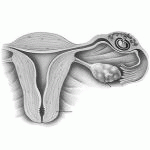Gynaecology
|
30 july 2014 07:02:30 |
| Aboriginal and Torres Strait Islander maternal and child health and wellbeing: a systematic search of programs and services in Australian primary health care settings (BMC Pregnancy and Childbirth) |
|
Tweet Background:
Persistent disparities in pregnancy and birth outcomes between Aboriginal and Torres Strait Islander and other Australians evidence a need to prioritise responsive practice in Maternal Child Health (MCH). This study reviewed the existing knowledge output on Aboriginal and Torres Strait Islander MCH programs and services with the objective to advance understanding of the current evidence base and inform MCH service development, including the identification of new research priorities.
Methods:
A systematic search of the electronic databases Informit, Proquest, PubMed, Scopus, Wiley, and Cinahl, and 9 relevant websites was undertaken for the period 1993-2012. The reference lists of MCH program reviews were hand-searched for additional relevant studies which met the eligibility criteria. The study designs of included publications were classified and the characteristics extracted and categorized. Evaluation quality was assessed using the Effective Public Health Practice Project (EPHPP) Quality Assessment Tool for Quantitative Studies and the Critical Appraisal Skills Program (CASP) tool for qualitative studies.
Results:
Twenty-three search results were identified for inclusion, with the majority published in 2003-2012. Fifty two percent of publications reported on programs and services operating out of Aboriginal Community Controlled Health Organisations, with antenatal and postnatal care the main intervention type/s, and health promotion/education and advice/support the most common intervention component. Outcomes such as increased antenatal attendance and higher infant birth weights were reported in some intervention studies, however methodological quality varied considerably with quantitative studies typically rated weak.
Conclusion:
The prevalence of community controlled and/or community-based programs is significant given the health and wellbeing implications of self-determination. While the literature highlights the promise of many intervention models and program components used there are some significant gaps in the documentation and implementation of important MCH interventions. Similarly, while positive health outcomes were reported there are issues with key measures used and study quality. This review highlights the need to improve the quality of evaluations of MCH programs for Aboriginal and Torres Strait Islander women and to address the key evidence gaps in responding to their health and wellbeing needs. |
| 65 viewsCategory: Gynaecology |
 Retrospective analysis of the diagnostic yield of newborn drug testing (BMC Pregnancy and Childbirth) Retrospective analysis of the diagnostic yield of newborn drug testing (BMC Pregnancy and Childbirth)EXIT procedure in twin pregnancy: a series of three cases from a single center (BMC Pregnancy and Childbirth) 
|
| blog comments powered by Disqus |
MyJournals.org
The latest issues of all your favorite science journals on one page
The latest issues of all your favorite science journals on one page



